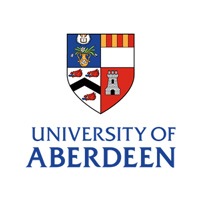fees waived
Chemical Engineering, MEng (Hons)
University of Aberdeen, United Kingdom
Subject ranking
UK / CUG 2024 11th
UK / Guardian 2025 12th
UK / Times 2025 15th
Costs
food & rentS$17.1K / year
Entry requirements
Scholarships
Limited quantity
Information
Code
Intakes
Website (External)
Programmes
Information
Duration
2030
Chemical engineering focuses on creating sustainable manufacturing processes for everyday products while tackling global issues like climate change, energy, and human health. Professionals in this field design efficient, safe, and cost-effective methods to convert raw materials into chemicals, fuels, foods, and pharmaceuticals, while contributing to society through innovations in drug production and environmental solutions such as pollution control.At Aberdeen, students gain a broad foundation in engineering disciplines before specialising in their third year, with options for MEng or BEng pathways. The program emphasises key decisions in reaction pathways, purification, safety systems, cost-effectiveness, and process optimisation. Located in Europe's energy hub, it offers industry connections and interdisciplinary skills, preparing graduates for collaboration and leadership. The course is accredited by bodies like the Institution of Chemical Engineers and ranks third in the UK per the Guardian University Guide 2023. Assessment includes coursework, practicals, and exams, with honours projects evaluated via dissertations.
The first two years cover general engineering, with elements of chemical, mechanical, petroleum and electrical/electronics, as well as civil. In the later years you specialise, following your chosen discipline in greater depth. You do not need to finalise your choice of specialisation until you begin third year. This is also the point at which a final decision between MEng and BEng must be made. Successful BEng candidates will be offered the chance to change to the MEng.
A local representative of University of Aberdeen in Singapore is available online to assist you with enquiries about this course.

